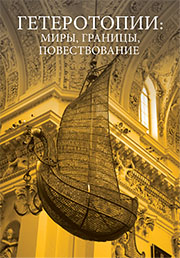Современные идиллии. Способы и функции обращения к идиллическому хронотопу в избранных произведениях новейшей русской литературы
Contemporary idylls. The Ways and Functions of Using Idyllic Chronotope in Selected Works of Modern Russian Literature
Author(s): Katarzyna SyskaSubject(s): Aesthetics, Russian Literature, Transformation Period (1990 - 2010), Theory of Literature
Published by: Vilniaus Universiteto Leidykla
Summary/Abstract: The present article examines the elements of idyllic chronotope in Lyudmila Ulitskaya’s novel Medea and Her Children and in selected poems by Timur Kibirov. Despite the fact that an idyll as a genre of lyrical poetry is no longer as popular, in modern Russian literature we come across numerous examples of using an idyll as a chronotope (M. Bakhtin) or aesthetic modality (F. Schiller, V. Tiupa). In the analysed works by Ulitskaya and Kibirov, the idyllic is used as a construction principle of the world presented and a specific worldview of the narrator/lyrical subject. At the same time, we can speak of heterotopic (M. Foucault) character of the literary idyllic spaces, as they are positioned as an alternative or an objection to the dominant places and discourses. Idyllic locus of Medea’s Crimean house and in a broader sense – Sinoply’s family – constitutes a clear “other place” in opposition to the totalitarian Stalinian power with its aspirations to subdue an individual and his/her private family sphere to the state’s interests; it allows for modes of behaviour alternative to the model citizen’s conduct. On the other hand, Timur Kibirov presents banal bourgeois idyll of conjugal life and fatherhood as a tool of an ideological fight against the dominant discourses (according to him) of romanticism and postmodernism in Russian ideological space of the 1990s.
Journal: Literatūra
- Issue Year: 57/2015
- Issue No: 5
- Page Range: 325-336
- Page Count: 12
- Language: Russian

